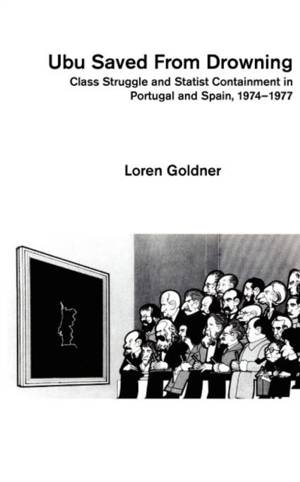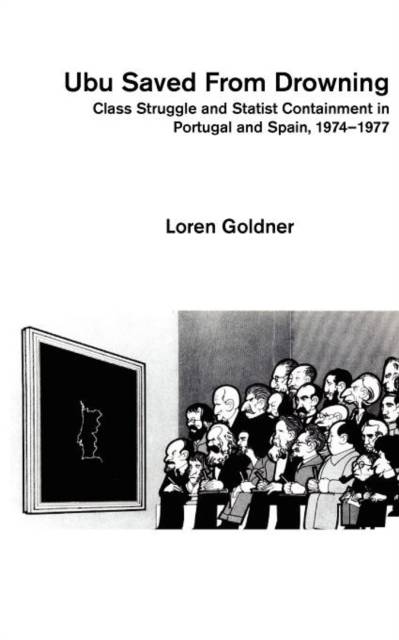
- Afhalen na 1 uur in een winkel met voorraad
- Gratis thuislevering in België vanaf € 30
- Ruim aanbod met 7 miljoen producten
- Afhalen na 1 uur in een winkel met voorraad
- Gratis thuislevering in België vanaf € 30
- Ruim aanbod met 7 miljoen producten
Zoeken
€ 9,95
+ 19 punten
Omschrijving
Little remembered today, the worker insurgencies in Portugal and Spain at the end of the Salazar and Franco dictatorships were, for a brief moment in the mid-1970s, at the center of world politics. They occurred in the midst of the 1973-75 crisis of world accumulation, in which capitalism was "changing gears" from the era of the big factory and the assembly line to the era of "globalization," deindustrialization, outsourtcing, downsizing and "just in time," the era in which we live today. They took place in a conjuncture that included the deepest economic downturn (to date) since the end of World War II, the oil crisis, the advance of "Euro-communism," the US defeat in Indochina, the triumph of "national liberation fronts" in the ex-Portuguese colonies of Angola, Mozambique and Ginea-Bissau, and the crisis in the Horn of Africa. World capitalism, centered in the United States, seemed to be everywhere involved in putting out fires, but the Iberian insurgencies were unique among these simultaneous crises in being centered on the working class and, particularly in the case of Portugal, directly posing the question of the state and unmasking the pretensions of different factions of "progressive" state bureaucrats. They were the most genuinely radical moments of the (mainly statist) "red mirage" that, briefly, seemed to have placed world capitalism on the defensive. By the late 1970s, capitalism had returned to the offensive, and the era of Thatcher and Reagan inaugurated a rollback that swept away leftist statism, up to and including the Soviet Union itself.What was ending was the century of the "progressive" state bureaucrat, who had entered the international workers' movement in the German SPD and its 1875 Gotha Program, and who for 100 years seemed, in "socialist" and "communist" guise, to represent something "beyond capitalism." Events since 1975 have shown that the "progressive state bureaucrat," everywhere, from England to China, represented, rather, something before capitalism, throwing the old statist "left" into terminal crisis. This book analyzes the last two Western worker revolts just before this turn, and shows how they already pointed toward a new era, though hardly the immediately revolutionary era they seemed to portend.Now that the statist illusion of the revolutionary workers' movement has been laid to rest once and for all, the Portuguese and Spanish worker revolts of the min-1970s offer one benchmark from which to judge present and future struggles.
Specificaties
Betrokkenen
- Auteur(s):
- Uitgeverij:
Inhoud
- Aantal bladzijden:
- 150
- Taal:
- Engels
- Reeks:
Eigenschappen
- Productcode (EAN):
- 9780970030801
- Verschijningsdatum:
- 1/09/2011
- Uitvoering:
- Paperback
- Formaat:
- Trade paperback (VS)
- Afmetingen:
- 127 mm x 203 mm
- Gewicht:
- 167 g

Alleen bij Standaard Boekhandel
+ 19 punten op je klantenkaart van Standaard Boekhandel
Beoordelingen
We publiceren alleen reviews die voldoen aan de voorwaarden voor reviews. Bekijk onze voorwaarden voor reviews.











